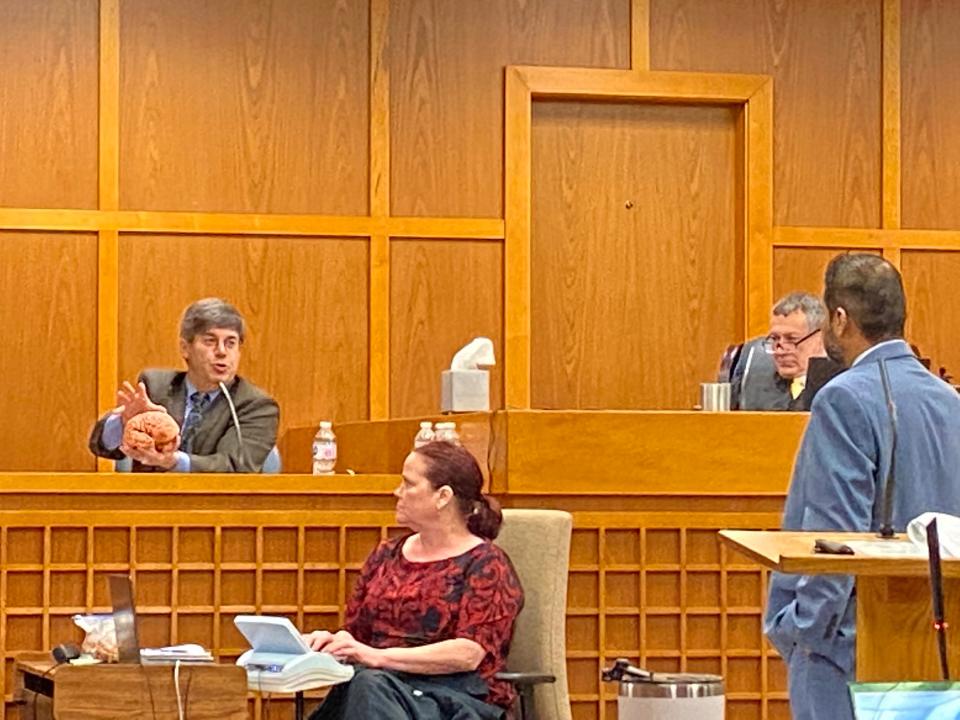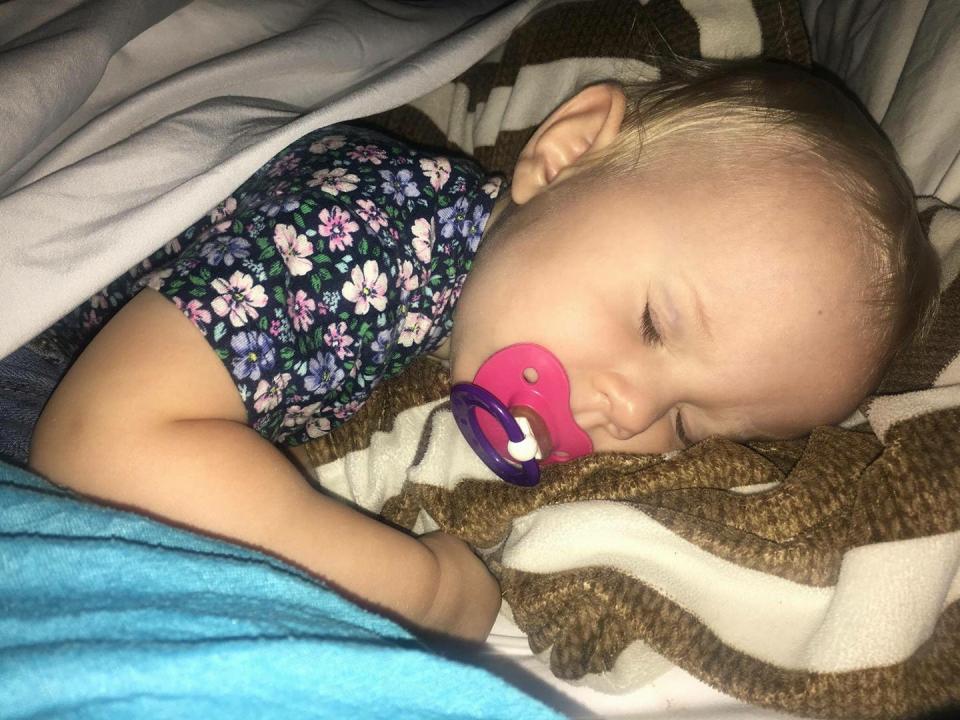Jeremy Main defense experts: Mental illness led to daughter's drowning death

TAVARES — Jeremy Main’s brain was damaged at birth, and later injured emotionally and physically, sending him on a “pathway” of mental illness that ended up with him drowning his 17-month-old daughter, defense experts testified Tuesday.
Jurors listened to hours of technical testimony about the interpretation of radiologic brain scans, and they heard from a psychologist who diagnosed the 43-year-old Lady Lake man as being bipolar, suffering from post-traumatic stress disorder, and having borderline and schizotypal personality disorders.
Main's defense team called these experts to try and convince jurors not to impose the death penalty and instead impose a life sentence without the possibility of parole. Last week, the jury convicted him of first-degree premeditated murder.
The crime shocked Lake County residents on Oct. 9, 2017, when Main's daughter, Makenzie, was found floating face down in a bathtub.
“You’re going to have a bad day,” Main said in a phone call to his then-wife, Holly Farrington. He said she would get the divorce she wanted, but “Makenzie is no longer with us.”
He surrendered to police within an hour with superficial cuts on his wrists, saying “I ruined my life,” but he refused to tell mental health experts or a detective why he did it.
Life or death? Penalty phase begins in Lady Lake man's murder trial
The verdict: Jury finds Jeremy Main guilty of murdering his baby; he could face the death penalty
‘Cold’: At trial, Lady Lake woman describes ex-husband’s tone when he said he killed their child
A 'pathway' to Makenzie's death?
Neurobiologist Gregg Stanwood, Ph.D. testified that it was fear of abandonment and separation.
“Killing her because of fear of losing her?” Assistant State Attorney Ryan Williams asked in cross-examination.
Stanwood used the word “pathway” to describe a lifetime of family violence, mental illness, suicide, emotional abuse, school bullies and deep depression.
Main checked six out of 10 adverse childhood experiences and trauma on a questionnaire.
His sister, Marnee Weakley, testified Monday their lives were “hell.”

Dr. Geoffrey Negin, a radiology neurologist, testified that a birth accident decreased oxygen and blood flow to Main’s brain. He also mentioned seeing scar tissue within the brain indicating head trauma.
Weakley testified that he had been in a car crash and had been beaten several times.
These experiences affected the brain, creating impulsivity, depression and other problems, and stress is the trigger, Stanwood said.
Psychologist Jethro Toomer, who made the personality disorder diagnoses, also said Main was driven by the fear of separation.
“His whole life was reflected in his abandonment,” Toomer said.
Both Stanwood and Toomer said Main was in the throes of “an extreme emotional or mental state,” a legal term used in mitigation.
More on Main's trial: Lady Lake man charged in baby daughter's 2017 bathtub death goes to trial
'You're going to have a bad day': Woman recalls chilling phone call when ex-husband said he killed baby
Cops: Man killed toddler over divorce
'You don’t see any murder from her'
Assistant State Attorney Ryan Williams hammered away at the idea that the murder was inevitable.
“What evidence do you have that he was unable to appreciate his criminality?” the prosecutor asked Toomer.
“I don’t hear you say that he didn’t have a choice,” Williams told Stanwood.
The prosecutor also noted that Weakley lived in the same home, “and you don’t see any murder from her.”
“We look at the totality of data,” Toomer said of psychologists. He was referring to the family history, hypoxia, depression, and trauma.
Williams pointed out that Main did not tell Toomer why he murdered the child.
Even if he had an explanation, Toomer replied, it would come through his mental illness “filter."
Main didn’t discuss it with Stanwood either.
“Because you didn’t ask,” Williams said.

The experts talked about the lack of mental health intervention that might have turned things around if introduced early enough. Yet, an aunt testified Monday that even when he was hospitalized in Iowa, he said he was just playing “mind games” with the doctors. He refused to take medication, and he wouldn’t work because he would rather stay in bed and not get up in the morning.
Testimony continues this week before Circuit Judge James Baxley.
This article originally appeared on Daily Commercial: Jeremy Main defense experts argue mental illness led to baby's death

 money
money 